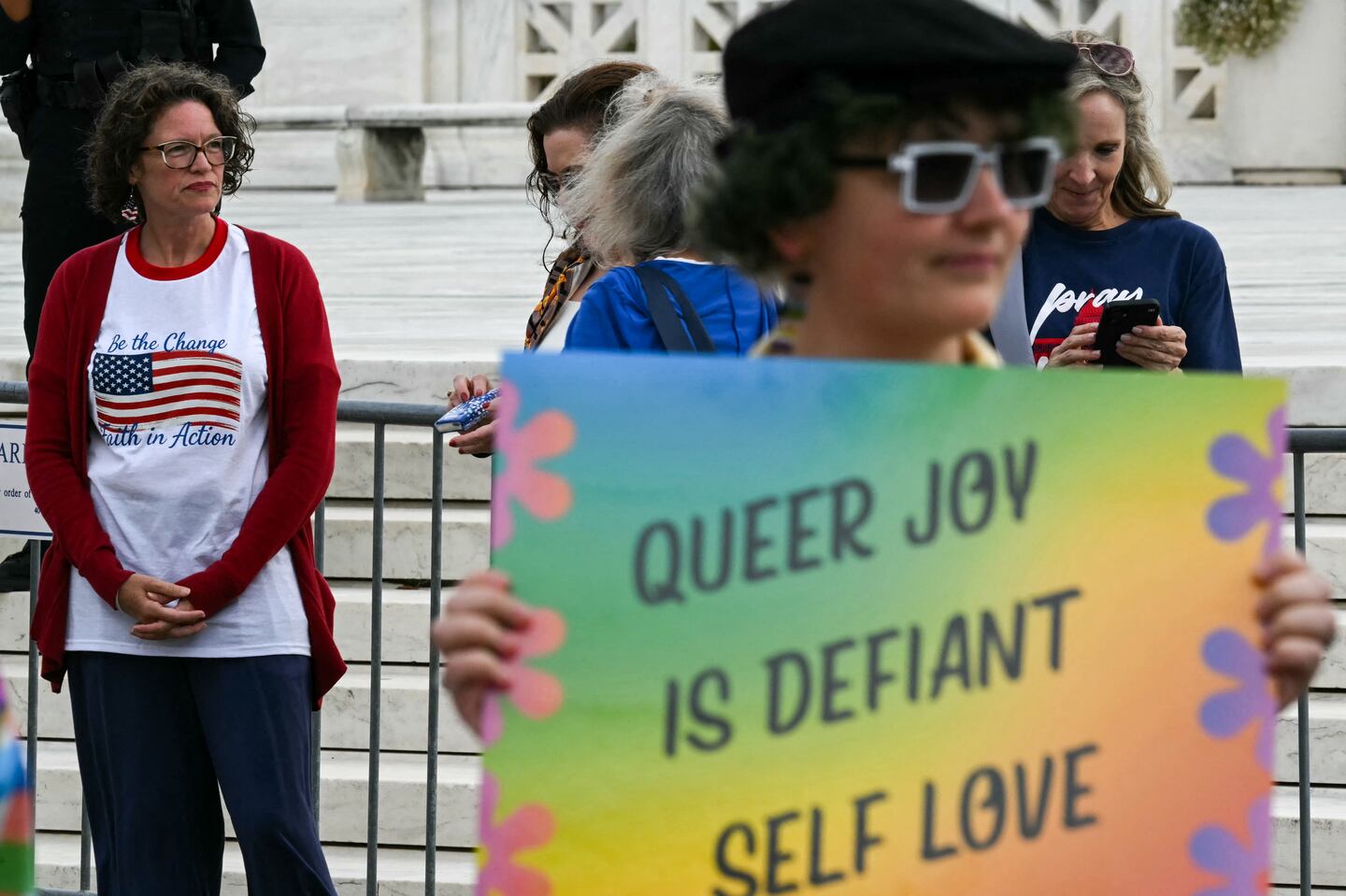In its opening week, the Supreme Court is faced with a significant case that highlights the cultural clash surrounding conversion therapy. This specific practice involves counseling LGBTQ individuals with the intention of altering their sexual orientation or identity, and it is currently prohibited by Colorado law.
The therapist at the center of this controversy, Kaley Chiles, is not arguing that the law infringes upon her religious practices. Rather, she asserts that it violates her constitutional right to free speech. The implications of the Court’s decision could be far-reaching.
During oral arguments held on Tuesday, indications suggest that Chiles may find favor with the Court’s majority. If that happens, one of two outcomes seems likely: the case might be sent back to lower courts for a more intense constitutional assessment known as strict scrutiny, or the Supreme Court might directly nullify the law.
This development aligns with the court’s historical tendencies, which often favor religious claims. Notable past cases include those involving a public school football coach who sought to pray publicly on the field and parents resisting LGBTQ-inclusive literature in schools.
Chiles’ case exemplifies a growing trend among religious litigants to rely on First Amendment free speech arguments rather than the more commonly used Free Exercise Clause that defends the practice of religion. This emerging strategy is not without precedent. In a landmark 2010 ruling, Snyder v. Phelps, the Court upheld the right of the Westboro Baptist Church to protest at military funerals. The verdict was based on the First Amendment, which then-Justice Samuel Alito critiqued as allowing for “a vicious verbal assault.”
Chiles argues that Colorado’s law unjustly restricts her ability to offer counseling as she sees fit, framing it as an infringement on her free speech. The state, however, maintains that the law serves a protective function, safeguarding individuals from ineffective and potentially dangerous therapies, including conversion therapy.
In its defense, Colorado referenced extensive research from prominent medical entities such as the American Medical Association and the American Psychological Association, all of which assert that sexual orientation and gender identity are not conditions requiring cure and indicate that conversion therapy can provoke increased dysphoria and even elevate suicide risks.
Nevertheless, the majority of the justices appeared unconvinced by the state’s arguments. Colorado Solicitor General Shannon Stevenson sought to clarify that the law targets specific therapeutic practices, distinguishing them from free speech treatments. Stevenson provided an example: if a therapist were approached by a client wanting to alter their homosexual feelings, that would be prohibited. However, if a client asked for help to navigate their feelings and identity, that would be acceptable under the law.
Justice Alito countered this assertion, asserting the broad terminology of the statute, which covers “efforts to change behaviors or gender expressions.” Alito drew a parallel to a hypothetical law prohibiting dangerous animals in parks, implying that its language clearly includes restrictions on specific dog breeds.
The outcome of Chiles’ case could pave the way for an array of new free speech-based challenges rooted in religious beliefs. This could complicate protections designed to uphold the civil rights of marginalized communities.
On a different front, notable lawyer Paul Clement has urged the Supreme Court to consider whether Illinois Representative Mike Bost should be allowed to contest the state’s mail-in ballot law, which permits counting ballots received up to two weeks post-Election Day. This case could set a precedent allowing candidates to challenge mail-in voting rules rather than limiting such challenges to political parties alone. Justice Elena Kagan exhibited skepticism surrounding the need for such an expansion of legal standing, suggesting that existing rules have served adequately.
In other developments, the Court has declined to entertain an appeal from Ghislaine Maxwell involving her prison sentence for conspiring with Jeffrey Epstein in the exploitation of minors, indicating a reluctance to engage with this high-profile case.
A separate case examines the potential infringement of Sixth Amendment rights regarding a defendant’s access to counsel during testimony breaks. Observers predict challenging outcomes, as justices from both parties have demonstrated a notable indifference toward the rights of defendants historically.
Lastly, the justices have been drawn into a case challenging a Trump-era policy requiring passport information to reflect birth-assigned gender designations. Advocates argue that the policy is discriminatory and unjustly impacts transgender, nonbinary, and intersex individuals.
As the Supreme Court embarks on this term, the ongoing discussions reflect the increasingly complex interplay between individual rights, religious freedoms, and public safety regulations.






